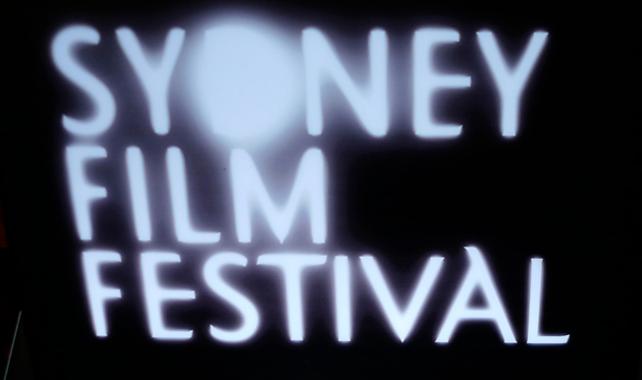
Last week we spoke to Nashen Moodley- the new Festival Director for this year’s Sydney Film Festival. Moodley has had an impressive career in film programming, and his film writing and criticism has appeared in newspapers and magazines including GQ, The Sunday Independent and The Guardian online. We look forward to his selections this year.
On his foray into films.
I’ve loved cinema from an early age mostly because of my Mum who loved films so I watched a lot of films growing up through her- mostly films she liked such as Westerns. By the time I got to high school, I became fairly open to what was happening in cinema internationally beyond Hollywood. And I think it developed from there. At university, I was writing for a student newspaper so I started covering the Durban Film Festival and would attend the festival devotedly. I started watching lots of films every year and then I became involved in working at the festival.
On the highlights of his ten years as the Director of the Durban Film Festival (2001-2011).
The great thing about my work there was that it developed so quickly and to such a great extent. In the first year we screened 30 films in one venue and we had one guest. And in my last year (which was last year) we screened 200 films in 15 venues and there were more than 400 film professionals attending. So it was a radical transformation. I was also involved with the festival at a time that South African cinema was changing quite a lot and lots of new filmmakers were emerging, so it was very exciting to be a part of launching those new films to South African audiences, and more broadly to the world.
On curating a festival.
For a festival like the Sydney Film Festival, it’s a festival for the public so it’s important for it to be a festival for everyone- for all the people of Sydney. So we want people to find a range of different films at the festival. It’s about finding a balance so that if people look at the program as a whole they’re going to find something that will want to make them attend. And hopefully, when they see the things that they expect to like, they’re also going to take a chance and see other films and be a little adventurous in their selection of what to watch- which is what we hope for.
Over recent years Moodley has programmed many Australian films internationally including; Somersault, Beneath Clouds, Lantana and Jindabyne, Samson and Delilah, Rabbit Proof Fence, Animal Kingdom, Japanese Story and Son of a Lion.
Great films from Australia. Australian cinema is really strong. I look forward to engaging more with the industry and seeing many more films. Australian cinema is very well respected internationally and festival programmers all around the world look for Australian films. Like every national film industry, Australian cinema needs more screen space within Australia and more support from the public. But it’s a little early for me to give you too many impressions of the industry.
On what we can expect at this year’s festival.
We’re about 20% done with the program and we should be halfway through in the next couple of weeks. It’s looking very good, it’s taking shape but we still have a lot to see. We’ve seen a lot of films over the last six weeks- travelling to festivals such as Sundance, Göteborg, Rotterdam, Berlin, trips to Paris for screenings there- but we still have a lot of films to see- including many Australian films that are in post-production now. So it’s a very exciting time. It’s a balancing act at the moment of committing to many films that we’ve seen already but making sure we have room left for those wonderful films that you somehow see at the very last moment.
On changes or advances he notices in the film world.
With something like 3D, for instance, this is not the first time that 3D has been around. These things happen in cycles. What I find striking is what festivals are going through right now. There’s a huge transition from 35mm to digital projection and that creates a series of challenges, but also opportunities.
In another sense, what’s happened with time is that the scope to see films outside festivals has become narrower. To watch international cinema outside the festival context- those opportunities have slimmed down quite considerably. It’s shared experience and people love seeing films together with other very interested cinephiles. And what makes festivals so fantastic is the presence of filmmakers and the opportunity to engage with filmmakers after their screenings. So I think it’s really valuable for filmmakers but it’s also wonderful for the audiences. So at the core, despite several changes, festivals are still amazing places to be and amazing places to watch films. Look at a film like The Artist– it’s incredible that a black & white, silent film has done so well all over the world and won the Oscar. There was big buzz in Cannes around the film and you can see how it can all roll out perfectly.
On his favourite films of the past year.
Well I don’t want to give any away that we’ll be including in this year’s festival but, last year in Cannes the film that really stayed with me and I really adored the film was Aki Kaurismaki’s Le Havre. He’s a great filmmaker and the film was really warm, funny and beautiful. I met him in Rotterdam a month ago and he’s a wonderful man who has a big heart and you can see it in his films. So that was one of the great films of last year. And of course, I also loved A Separation which won the big prize in Sydney and also at the Durban Film Festival. I think that’s a masterpiece.
Sydney Film Festival’s full program will be announced on May 9. This year’s festival runs from 6-17 June. For more information visit the website.



